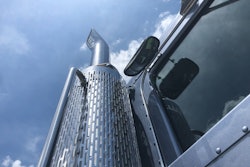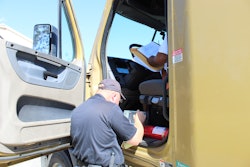FMCSA proposes pilot program to study more split-sleeper options
The Federal Motor Carrier Safety Administration announced Thursday it will propose a new pilot program for truck drivers to evaluate adding a 6/4 and 5/5 sleeper-berth split to the hours of service regulations.
During the proposed pilot program, drivers would have the option to split their 10-hour off-duty sleeper berth time into two periods, provided that the two periods total at least 10 hours. Drivers participating in the proposed pilot would be expected to split their sleeper berth time into two periods so that neither period is less than four hours.
FMCSA says that it received many comments on its hours of service rulemaking that went into effect in September asking for more flexibility for sleeper splits beyond the 7/3- and 8/2-hour splits currently allowed.
In its notice of proposed rulemaking for the recent HOS changes, FMCSA says it asked for data on the 6/4 and 5/5 splits, but none was received. This proposed pilot would be used to collect the additional data to determine if the additional splits should be added to the HOS regulations.
“FMCSA continues to explore ways to provide flexibility for drivers, while maintaining safety on our roadways,” said FMCSA Deputy Administrator Wiley Deck. “This proposed pilot program will provide needed data and feedback for the agency to use now and in the future. Gathering more data on split-sleeper flexibility will benefit all CMV stakeholders. We encourage everyone to review this proposal and provide their public comments.”
FMCSA says it would look to include truck drivers from small, medium and large carriers, as well as team drivers and owner-operators, to participate in the pilot. The agency hopes to have between 200 and 400 drivers participate. The program would collect driver identification details and data on sleep, safety-critical events, subjective sleepiness ratings and behavioral alertness throughout driver participation in the study, FMCSA adds.










